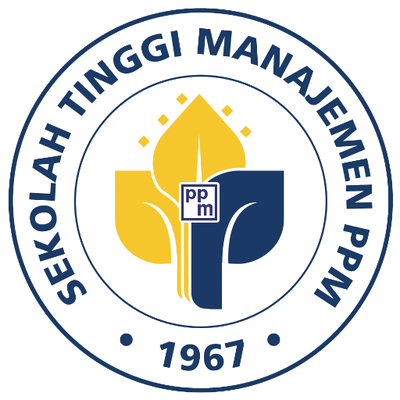STUDI EKSPLORASI BIAS ORIENTATION DAN COGNITIVE KNOWLEDGE DALAM SUKSESI USAHA RM. SIMPANG RAYA PADANG
Abstract
Keywords
References
Akhavan, P., Rahimi, A., & Mehralian, G. (2013). Developing a model for knowledge sharing in research centers. Vine, 43(3), 357–393. https://doi.org/10.1108/VINE-06-2012-0020
Alleyne, P., Indies, W., & Pierce, A. (2015). Family business succession among Entrepreneurs : Evidence from prominent family businesses in Barbados. (September).
Arthadian, R., Retno, R. R., Bisnis, P. M., Manajemen, P. S., Petra, U. K., & Siwalankerto, J. (2014). Keterlibatan Anggota Keluarga Dalam Family Business dan Hubungannya Terhadap Kinerja Bisnis ( Studi Pada Perusahaan Sektor Makanan dan Minuman di Sidoarjo). Agora, 2(2).
Bierwerth, M., Schwens, C., Isidor, R., & Kabst, R. (2015). Corporate entrepreneurship and performance: A meta-analysis. Small Business Economics, 45(2), 255–278. https://doi.org/10.1007/s11187-015-9629-1
Budiman, R., & Mustamu, R. (2014). Bidang Distribusi Makanan. 2(2).
Burhan, B. (2013). Metode Penelitian Kualitatif. Jakarta: Raja Grafindo Persada.
Chirico, F. (2008). Knowledge accumulation in family firms: Evidence from four case studies. International Small Business Journal, 26(4), 433–462. https://doi.org/10.1177/0266242608091173
Cong, C., Dempsey, M., & Xie, H. M. (2017). Political skill, entrepreneurial orientation and organizational justice: A study of entrepreneurial enterprise in China. International Journal of Entrepreneurial Behaviour and Research, 23(1), 20–34. https://doi.org/10.1108/IJEBR-05-2015-0103
Cresswell, J. W. (2013). Qualitative Inquiry & Research Design (Third). London: SAGE Publcations.
Elenurm, T. (2012). Entrepreneurial orientations of business students and entrepreneurs. Baltic Journal of Management, 7(2), 217–231. https://doi.org/10.1108/17465261211219822
Ibrahim. (2015). Metodologi Penelitian Kualitatif (E. Kurnanto, ed.). Bandung: ALFABETA.
Islam, M. Z., Jasimuddin, S. M., & Hasan, I. (2015). Organizational culture, structure, technology infrastructure and knowledge sharing. Vine, 45(1), 67–88. https://doi.org/10.1108/vine-05-2014-0037
Khvatova, T., Block, M., Zhukov, D., & Lesko, S. (2016). How to measure trust: the percolation model applied to intra-organisational knowledge sharing networks. Journal of Knowledge Management, 20(5), 918–935. https://doi.org/10.1108/JKM-11-2015-0464
Kuratko, D. F. (2010). “Corporate entrepreneurship: an introduction and research review†(2nd ed.). New York.
Kusuma, G. H. (2014). Transfer Pengetahuan antar Generasi pada Perusahaan Keluarga Gabriella Hanny Kusuma. 4–6.
Kusuma, G. H. (2016). Metode Transfer Pengetahuan Pada Perusahaan Keluarga Di Indonesia. Modus. 27(2), 125. https://doi.org/10.24002/modus.v27i2.552
Lesal, P. R. (2015). Analisa Transformasi Nilai Dalam Proses Suksesi Pada Pt. Prima Jaya Di Surabaya. Agora, 3(2), 158–166.
Lin, H. F. (2015). Linking knowledge management orientation to balanced scorecard outcomes. Journal of Knowledge Management, 19(6), 1224–1249. https://doi.org/10.1108/JKM-04-2015-0132
Patel, P. C., & Fiet, J. O. (2011). Knowledge combination and the potential advantages of family firms in searching for opportunities. Entrepreneurship: Theory and Practice, 35(6), 1179–1197. https://doi.org/10.1111/j.1540-6520.2011.00497.x
Prasetio, Y., & Nugraheni, R. (2018). Transfer Pengetahuan Pada Perusahaan Keluarga ( Studi pada Perusahaan Keluarga Arya Mas ). 7, 1–11.
Short, J. C., Sharma, P., Lumpkin, G. T., & Pearson, A. W. (2016). Oh, the Places We’ll Go! Reviewing Past, Present, and Future Possibilities in Family Business Research. Family Business Review, 29(1), 11–16. https://doi.org/10.1177/0894486515622294
Shu, C., De Clercq, D., Zhou, Y., & Liu, C. (2019). Government institutional support, entrepreneurial orientation, strategic renewal, and firm performance in transitional China. International Journal of Entrepreneurial Behaviour and Research, 25(3), 433–456. https://doi.org/10.1108/IJEBR-07-2018-0465
Shu, X. (2013). Firm Performance , Entrepreneurship and Business Succession in Family Firms.
Suess-Reyes, J. (2017). Understanding the transgenerational orientation of family businesses: the role of family governance and business family identity. Journal of Business Economics, 87(6), 749–777. https://doi.org/10.1007/s11573-016-0835-3
Susanto, A. ., & Susanto, P. (2013). The Dragon Network: Inside Stories of Most Successful Chinese Family Business. John Wiley & Sons.
Tangradi, D. (2016). Tahapan Perencanaan Suksesi Pada. 4(2).
Vij, S., & Farooq, R. (2014). Knowledge Sharing Orientation and Its Relationship with Business Performance : A Structural Equation Modeling Approach. IUP Journal of Knowledge Management, 12(3), 17–41. https://doi.org/10.4018/ijkm.2014070103
Wales, W. J. (2016). Entrepreneurial orientation: A review and synthesis of promising research directions. International Small Business Journal: Researching Entrepreneurship, 34(1), 3–15. https://doi.org/10.1177/0266242615613840
Warnar, P. (2012). Master Thesis Family businesses and knowledge transfer. (1286781).
Woodfield, P. J., Shepherd, D., & Woods, C. (2017). How can family winegrowing businesses be sustained across generations? International Journal of Wine Business Research, 29(2), 122–139. https://doi.org/10.1108/IJWBR-12-2015-0052
DOI: https://doi.org/10.34149/jmbr.v17i2.208
Indexing
JMBR Editorial Office: PPM School of Management, Jl. Menteng Raya 9-19 Jakarta 10340 Phone: 021-2300313 ext 2354

License
JMBR is using CC BY License
This work is licensed under a Creative Commons Attribution 4.0 International License.


















